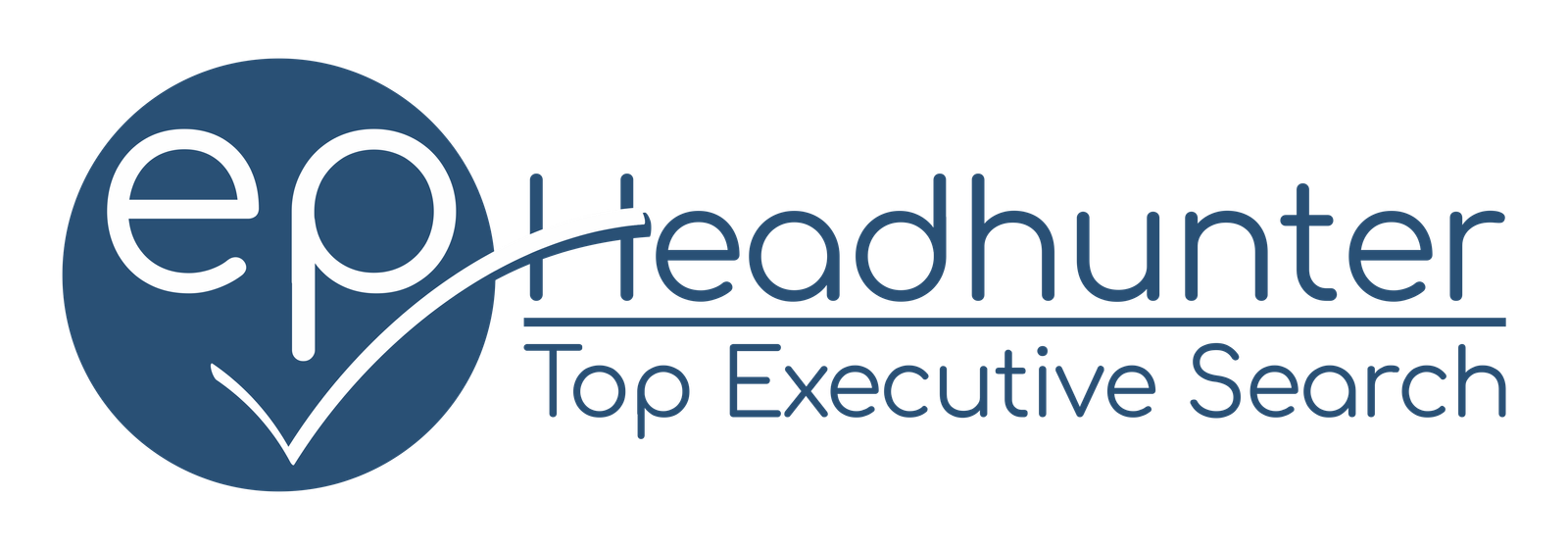Have you ever wondered how top professionals manage to work from anywhere in the world while maintaining their careers? The answer lies in a growing trend: specialized visas designed for remote workers. These programs offer executives the freedom to live and work abroad without the constraints of traditional tourist visas.
Unlike standard visas, these programs cater specifically to remote workers. They provide long-term residency options, often with tax benefits and minimal income requirements. This flexibility allows executives to explore new cultures while staying productive.
Countries worldwide are recognizing the value of attracting skilled professionals. Programs like these not only boost local economies but also offer a unique lifestyle for applicants. Whether you’re looking for a change of scenery or a new way to balance work and life, these visas open doors to endless possibilities.
Key Takeaways
- Specialized visas offer long-term residency for remote workers.
- These programs often include tax benefits and flexible income requirements.
- They provide a unique opportunity to work and live in different countries.
- Executives can maintain productivity while exploring new cultures.
- Many countries are actively attracting skilled professionals through these programs.
Understanding Digital Nomad Visas
The global shift toward remote work has introduced innovative visa options for professionals. These programs, often referred to as digital nomad visas, cater specifically to individuals who work remotely for companies based outside their host country. Unlike traditional tourist visas, they provide long-term residency, enabling professionals to live and work abroad legally.

Defining the Digital Nomad Visa
A digital nomad visa is designed for remote workers who wish to reside in a foreign country while continuing their professional roles. This visa allows applicants to legally stay in a host country for extended periods, often ranging from six months to two years. To qualify, applicants typically need to provide proof of income, demonstrate employment with an overseas company, and meet specific financial requirements.
For example, countries like Croatia require a minimum monthly income of €2,870, while Barbados sets an annual income threshold of $50,000. These requirements ensure that applicants can support themselves without relying on local resources.
How They Differ from Tourist Visas
Unlike tourist visas, which limit stays to short durations and prohibit work, digital nomad visas offer greater flexibility. They allow professionals to maintain their careers while exploring new cultures. Additionally, these visas often come with tax benefits and access to local services, making them an attractive option for executives seeking a balanced lifestyle.
Processing times and documentation vary by country, but most applications require bank statements, employment verification, and health insurance. This streamlined process makes it easier for professionals to transition into a global work environment.
Digital nomad visas are more than just travel permits; they represent a growing trend toward flexible work arrangements. For executives, these programs open doors to new opportunities, allowing them to thrive in a globalized world.
The Rise of Remote Work and Digital Nomadism
The way we work has transformed dramatically in recent years, with remote work becoming a global norm. The COVID-19 pandemic accelerated this shift, pushing organizations to adopt flexible work arrangements. Today, professionals are no longer confined to traditional office spaces, embracing a lifestyle that blends work and travel seamlessly.
Statistics show a significant increase in remote work adoption. Technologies like high-speed internet and collaboration tools have made it easier than ever to stay connected. This has paved the way for the rise of digital nomadism, where individuals work remotely while exploring new cultures and locations.

For executives, this trend offers unique advantages. It allows for greater work-life balance and the freedom to choose where to live and work. Companies benefit too, as they can tap into a global talent pool without geographical constraints.
Key moments in this shift include the move from conventional office setups to a borderless digital workforce. Remote work across borders has become not only practical but also highly attractive. With the right tools and mindset, professionals can thrive in this new era of work.
Digital nomads enjoy unparalleled flexibility. They can explore new destinations while maintaining their careers. This lifestyle is supported by programs that cater to remote workers, offering extended stays and tax benefits.
For executives, leveraging this trend can lead to improved operational efficiency and a more fulfilling personal life. The ability to work from anywhere opens doors to endless opportunities, making it a win-win for both professionals and organizations.
Key Advantages for Executives
Executives today have more opportunities than ever to blend work and travel seamlessly. Specialized programs cater to their unique needs, offering financial perks and lifestyle flexibility. These advantages make it easier to maintain productivity while exploring new cultures.

Tax Benefits and Financial Perks
One of the most attractive features of these programs is the potential for tax benefits. Many countries offer reduced income tax rates or non-resident tax conditions for remote workers. For example, Portugal’s Non-Habitual Resident (NHR) program provides significant tax advantages for executives.
Financial perks extend beyond taxes. Some countries offer deductions for relocation expenses or incentives for long-term stays. These benefits can lead to substantial savings, making it easier to manage cost of living abroad.
Extended Residency and Work-Life Balance
Extended residency options are another key advantage. Programs often allow stays of up to two years, with the possibility of renewal. This flexibility enables executives to settle into a new environment without the stress of frequent relocations.
Countries like Thailand and Croatia offer special residence permits tailored to remote workers. These permits provide stability and access to local services, enhancing work-life balance. For executives with families, some programs even include provisions for dependents.
These benefits not only improve quality of life but also support long-term financial planning. By choosing the right program, executives can enjoy a fulfilling lifestyle while advancing their careers.
Navigating Nomad Visa Requirements
Understanding the requirements for a nomad visa is crucial for a smooth application process. These programs often have specific financial and health criteria that applicants must meet. By preparing in advance, you can ensure a hassle-free experience.

Minimum Income and Savings Criteria
One of the primary requirements is meeting the minimum income threshold. For example, Malta requires applicants to show a monthly income of at least €3,480. Similarly, Portugal sets a threshold of €3,280 per month.
In addition to income, many countries also require proof of savings. This ensures that applicants can support themselves during their stay. Documentation such as bank statements is typically needed to verify these criteria.
Health Insurance and Family Inclusion
Another key requirement is having robust health insurance. This coverage must include both emergency and routine care. Countries like Greece and Italy specify minimum coverage amounts, such as €30,000.
For those planning to include family members, additional considerations apply. Income thresholds often increase to account for dependents. For instance, in Malta, the income requirement rises to €4,200 for applicants with a spouse.
Proper documentation is essential. This includes proof of income, savings, and insurance. Meeting these requirements not only qualifies you for the visa but also ensures a comfortable stay abroad.
Application Processes and Timelines
Applying for a remote work visa involves several steps, each requiring careful attention to detail. The process varies by country, but most programs follow a similar structure. We’ll guide you through the essential steps to ensure a smooth application experience.
First, gather all necessary documents. These typically include a valid passport, proof of remote work, and income verification. Some countries may also require health insurance or a criminal background check. Having these ready will save time and prevent delays.
Next, complete the application form. Many countries now offer online applications, while others may require in-person interviews at consulates. For example, the Bahamas processes applications in about five days, while Cabo Verde can take up to two weeks. Always check the specific requirements for your chosen destination.
Processing times can vary significantly. While some countries, like the Bahamas, process applications in as little as five days, others may take several weeks or even months. It’s crucial to plan ahead and account for these timelines to avoid last-minute stress.
Here’s a quick comparison of application processes and fees for popular destinations:
| Country | Processing Time | Application Fee | Income Requirement |
|---|---|---|---|
| Bahamas | 5 days | $25 | None specified |
| Barbados | 1-2 weeks | $2,000 | $50,000/year |
| Cabo Verde | 2 weeks | €1,500 (bank balance) | None specified |
| Costa Rica | 2-4 weeks | $100 | $3,000/month |
Finally, ensure you meet all requirements before submitting your application. Missing documents or incomplete forms can lead to delays. By following these steps, you’ll be well-prepared to navigate the application process and start your journey as a remote worker.
Comparing Cost of Living and Rental Markets
Understanding the cost of living and rental markets is essential for executives planning a nomadic lifestyle. These factors play a significant role in determining where to settle and how to manage expenses effectively. By comparing these costs, professionals can make informed decisions that align with their financial goals.
Different countries offer varying levels of affordability. For example, Spain and Portugal are known for their relatively low living costs, while Malta and Costa Rica provide a balance between affordability and quality of life. These differences can influence where executives choose to live and work remotely.
Budgeting for a Nomadic Lifestyle
Budgeting is crucial for maintaining a sustainable lifestyle abroad. Executives must consider not only rent but also utilities, groceries, and transportation. A well-planned budget ensures that they can enjoy their new environment without financial stress.
Here’s a comparison of average monthly costs in popular destinations:
| Country | Average Monthly Cost | Minimum Income Required |
|---|---|---|
| Spain | $1,300-$2,000 | $2,500 |
| Portugal | $1,200-$1,800 | $3,646 |
| Costa Rica | $1,000-$1,600 | $3,000 |
| Malta | $1,200-$1,600 | $3,001 |
These figures highlight the importance of understanding local markets. Executives should also factor in potential tax benefits and other financial perks when planning their budgets. By doing so, they can maximize their income while enjoying a high quality of life.
For those with family members, additional considerations come into play. Income requirements often increase to account for dependents, and access to schools or healthcare may influence location choices. Careful planning ensures that both work and personal needs are met.
In conclusion, comparing the cost of living and rental markets is a critical step for executives embracing a nomadic lifestyle. By analyzing these factors, they can choose destinations that offer both financial stability and a fulfilling experience.
Visa Validity and Renewal Options
Understanding the duration and renewal options for your visa is essential for long-term planning. Validity periods vary by country, with most programs offering stays of up to one year. Knowing how to extend or renew your residency permit ensures a seamless experience abroad.
For example, Spain and Portugal both provide one-year visas with the option to renew. This flexibility allows professionals to settle into their new environment without frequent relocations. Other countries, like Croatia and Estonia, also offer similar programs with straightforward renewal processes.
Renewal requirements often include proof of continued income, updated health insurance, and a clean criminal record. Meeting these criteria is crucial for maintaining your legal status. Some programs, like Portugal’s D7 Visa, even allow for multi-year extensions, making them ideal for long-term planning.
Here’s a comparison of visa validity and renewal options in popular destinations:
| Country | Initial Validity | Renewal Options | Key Requirements |
|---|---|---|---|
| Spain | 1 year | Renewable for up to 5 years | Proof of income, health insurance |
| Portugal | 1 year | Renewable for 2 years | Minimum income, updated documentation |
| Croatia | 1 year | Renewable for 1 year | Bank statements, employment proof |
| Estonia | 1 year | Renewable for 1 year | Income verification, health insurance |
Tracking expiration dates and preparing renewal documents in advance can prevent disruptions. Many countries allow applications to be submitted several months before the current visa expires. This proactive approach ensures you can continue your work and lifestyle without interruption.
For those considering permanent residency, understanding renewal options is even more critical. Programs like Spain’s and Portugal’s offer pathways to long-term stays, making them attractive for professionals seeking stability. By staying informed and organized, you can maximize the benefits of your chosen program.
Regional Insights: Europe’s Nomad Visa Programs
Europe has become a hotspot for professionals seeking flexible work arrangements through specialized visa programs. These initiatives cater to remote workers, offering extended stays and unique benefits. We’ll explore the options available in Portugal, Spain, Malta, Croatia, Romania, and Estonia, highlighting their key features and requirements.
Overview of Portugal, Spain, and Malta Options
Portugal’s D8 Visa is a popular choice, requiring a minimum income of €3,280 per month. It allows stays of up to one year, with the possibility of renewal. Spain’s program is equally attractive, offering a one-year visa that can lead to a three-year residence permit. Malta’s Nomad Residence Permit stands out with its four-year validity and a minimum income requirement of €3,500 per month.
Unique Schemes in Croatia, Romania, and Estonia
Croatia’s program requires a monthly income of €2,500 and offers tax exemptions for remote workers. Romania’s scheme is tailored for high earners, with a minimum income threshold of €3,950 per month. Estonia’s program is ideal for tech-savvy professionals, requiring €4,500 per month and offering a streamlined application process.
Here’s a comparison of these programs:
| Country | Minimum Income | Visa Validity | Renewal Options |
|---|---|---|---|
| Portugal | €3,280/month | 1 year | Renewable for 2 years |
| Spain | €2,646/month | 1 year | Renewable for 3 years |
| Malta | €3,500/month | 4 years | Not renewable |
| Croatia | €2,500/month | 1 year | Renewable annually |
| Romania | €3,950/month | 1 year | Renewable annually |
| Estonia | €4,500/month | 1 year | Extendable by 6 months |
Each program has its own advantages, from tax benefits to pathways for permanent residency. Understanding the specific requirements and benefits can help you choose the right option for your needs. Always review the latest guidelines to ensure compliance with each country’s rules.
Global Perspectives: Beyond Europe
The world offers a variety of opportunities for professionals seeking to work remotely beyond Europe. While Europe remains a popular destination, regions like Asia and Latin America are emerging as attractive alternatives. These areas provide unique benefits, from lower cost of living to diverse cultural experiences.
Highlights from Asia, Latin America, and More
Asia is home to several programs tailored for remote workers. Thailand, for example, requires a yearly income of $80,000 for its long-term visa. Indonesia offers a similar program, making it a hotspot for digital nomads seeking tropical environments.
Latin America is equally appealing. Costa Rica’s program requires a monthly income of $3,000, while Mexico demands either $4,450 monthly or $73,950 in savings. These options provide flexibility for professionals looking to balance work and lifestyle.
Here’s a comparison of key programs in these regions:
| Country | Minimum Income | Visa Validity | Unique Perks |
|---|---|---|---|
| Thailand | $80,000/year | 10 years | Tax benefits, renewable |
| Costa Rica | $3,000/month | 1 year | Family inclusion, low cost of living |
| Mexico | $4,450/month | 1 year | Savings option, extendable |
These programs differ significantly from European options. For instance, Costa Rica’s lower income threshold makes it accessible to a broader range of professionals. Mexico’s savings option provides flexibility for those with irregular incomes.
Emerging markets like Mauritius and Namibia are also worth considering. Mauritius offers a free visa with no income requirements, while Namibia requires $2,000 monthly. These regions are ideal for those seeking unique experiences without the constraints of higher costs.
Executives should weigh these regional differences carefully. Factors like cost of living, cultural preferences, and visa flexibility play a crucial role in decision-making. By exploring these options, professionals can find the perfect fit for their remote work lifestyle.
Opportunities for Family Inclusion
Relocating as a family while working remotely is now more accessible than ever. Many visa programs have adapted to include provisions for family members, making it easier for professionals to bring their loved ones along. This shift reflects the growing demand for flexible work arrangements that accommodate personal and professional needs.
When adding a spouse or children to your application, adjustments are often required. For example, income thresholds typically increase to account for dependents. In Spain, the minimum income rises to €3,646 for applicants with a spouse, while Croatia adds €240 per family member to its €2,400 base requirement.
Documentation is a critical part of the process. Applicants must provide additional proof of income and health insurance coverage for each family member. For instance, Cyprus requires €3,500 monthly per adult and an extra 15% for each child. These requirements ensure that families can support themselves during their stay.
Beyond financial considerations, family inclusion offers significant benefits. Many programs provide access to local public services, including schools and healthcare. This makes it easier for families to settle into their new environment and maintain a high quality of life.
However, including family members can impact overall cost of living. Budgeting for additional expenses like housing, education, and healthcare is essential. For example, in Portugal, the monthly cost for a family of four averages €2,000, while in Costa Rica, it’s around $1,600.
To ensure a seamless relocation process, start by researching the specific requirements of your chosen program. Gather all necessary documents, including proof of income, health insurance, and family records. Planning ahead can help you avoid delays and make the transition smoother for everyone involved.
In conclusion, family inclusion in remote work visas is a valuable option for professionals seeking to balance their careers with personal life. By understanding the requirements and planning carefully, you can create a fulfilling experience for your entire family.
Balancing Income Tax and Financial Planning
Managing taxes while working internationally can be complex, but with the right strategies, it becomes manageable. Different countries have varying income tax regimes, which can significantly impact your financial planning. Understanding these differences is crucial for optimizing your tax obligations while maintaining a sustainable lifestyle.
For example, countries like Hungary and Portugal impose local income tax liabilities after 183 days of residence. This means you need to plan your stay carefully to avoid unexpected tax burdens. Similarly, the United States requires its citizens to pay taxes regardless of their location, adding another layer of complexity.
Here are some strategies to balance your tax obligations with savings and investments:
- Research countries with lower or preferential tax rates for remote workers.
- Take advantage of tax deductions and incentives offered by host countries.
- Plan your stay to avoid triggering local income tax liabilities.
- Maintain detailed records of your income and expenses for accurate tax filing.
Rigorous financial planning can also lead to sustainable long-term residency options. For instance, Portugal’s Non-Habitual Resident (NHR) program offers significant tax benefits for professionals. By aligning your tax planning with your overall income and expenditure management, you can create a stable financial foundation.
Here’s a comparison of tax regimes in popular destinations:
| Country | Tax Liability After | Key Benefits |
|---|---|---|
| Hungary | 183 days | Low corporate tax rates |
| Portugal | 183 days | NHR program for tax exemptions |
| United States | Always | Global taxation with deductions |
By understanding these tax regimes and planning accordingly, you can minimize your tax burden while maximizing your savings. This approach ensures that you can enjoy the benefits of a remote work lifestyle without financial stress.
Selection Criteria: Safety, Infrastructure, and Culture
Choosing the right location for a remote work lifestyle involves more than just finding a place with good Wi-Fi. Safety, robust infrastructure, and a welcoming cultural environment are critical factors. These elements ensure a smooth transition and a fulfilling experience for professionals and their families.
Safety is a top priority for any applicant considering a move abroad. Countries like Portugal and Estonia rank high in global safety indexes, offering peace of mind for residents. Reliable infrastructure, including high-speed internet and efficient public services, is equally important. For example, Spain and Thailand provide excellent connectivity, making them ideal for remote work.
A vibrant cultural environment enhances the quality of life. Countries like Costa Rica and Georgia are known for their welcoming communities and rich traditions. These factors contribute to a sense of belonging and make the transition easier for families.
Government policies also play a crucial role. Many countries have implemented measures to ensure both security and digital connectivity. For instance, Croatia offers tax exemptions for remote workers, while Malta provides long-term residence permits with minimal requirements.
Here are some key considerations when selecting a destination:
- Safety rankings and crime rates.
- Availability of high-speed internet and public services.
- Cultural vibrancy and community support.
- Government policies supporting remote workers.
By carefully evaluating these criteria, professionals can choose a location that aligns with their lifestyle and income goals. This thoughtful approach leads to a more balanced and rewarding experience.
Best Countries for Digital Nomad Visas for Executives
Exploring global opportunities for remote work has become a priority for many professionals. Executives seeking flexibility and a better work-life balance are increasingly turning to specialized visa programs. These initiatives offer unique benefits, from tax incentives to extended residence permits, making them an attractive option for high-level professionals.
Countries like Portugal and Spain have emerged as top destinations for remote work. Portugal’s D8 Visa requires a minimum income of €3,280 per month, while Spain offers a one-year visa that can lead to a three-year residence permit. These programs not only provide financial perks but also access to vibrant cultural environments.
In Latin America, Costa Rica and Mexico are gaining popularity. Costa Rica’s program requires a monthly income of $3,000, while Mexico demands either $4,450 monthly or $73,950 in savings. These options provide flexibility for professionals looking to balance work and lifestyle.
Here’s a comparison of key programs in these regions:
| Country | Minimum Income | Visa Validity | Unique Perks |
|---|---|---|---|
| Portugal | €3,280/month | 1 year | Tax benefits, renewable |
| Spain | €2,646/month | 1 year | Pathway to long-term residency |
| Costa Rica | $3,000/month | 1 year | Family inclusion, low cost of living |
| Mexico | $4,450/month | 1 year | Savings option, extendable |
These programs stand out due to their efficient digital infrastructure and supportive environments. For executives, choosing the right destination involves considering factors like cost of living, cultural preferences, and visa flexibility. By exploring these options, professionals can find the perfect fit for their remote work lifestyle.
In conclusion, the rise of specialized visa programs has opened doors for executives to work and live abroad seamlessly. With careful planning and research, professionals can enjoy the benefits of a global work environment while advancing their careers. These visa programs not only simplify the relocation process but also provide access to countless opportunities in emerging markets. As professionals explore the best countries for executive positions, they can leverage their expertise in diverse cultural contexts, enhancing both personal and professional growth. Ultimately, this global mobility fosters innovation and collaboration, benefiting both the individuals and the companies that employ them.
Health Insurance and Remote Work Benefits
Securing robust health insurance is a critical step for professionals embracing a remote work lifestyle abroad. Many countries require proof of comprehensive coverage as part of the visa application process. This ensures that applicants can access quality healthcare while living and working in a foreign country.
Ensuring Comprehensive Coverage
Countries like Spain and Portugal mandate specific health insurance requirements for visa approval. For example, Spain requires coverage of at least €30,000, while Portugal demands proof of insurance that includes emergency and routine care. These requirements are designed to protect both the applicant and the host country’s healthcare system.
For those relocating with family, additional considerations come into play. Many programs increase the income threshold to account for dependents and require extended coverage. This ensures that all family members have access to necessary medical services during their stay.
Here’s a comparison of health insurance requirements in popular destinations:
| Country | Minimum Coverage | Key Benefits |
|---|---|---|
| Spain | €30,000 | Emergency and routine care |
| Portugal | €30,000 | Includes dependents |
| Japan | JPY 10 million | Non-renewable visa |
| Canada | Universal coverage | Public healthcare system |
Selecting the right health insurance plan is essential for maintaining a secure remote work lifestyle. Look for plans that offer international coverage, emergency evacuation, and telemedicine services. These features provide peace of mind and ensure access to healthcare wherever you are.
In conclusion, comprehensive health insurance is more than just a visa requirement—it’s a cornerstone of a successful remote work experience. By understanding the specific requirements and choosing the right plan, professionals can focus on their careers while staying protected abroad.
Navigating Technological and Connectivity Factors
In today’s interconnected world, reliable technology and seamless connectivity are essential for professionals working remotely. For digital nomads, robust infrastructure ensures productivity and a smooth transition into a new environment. High-speed internet, efficient public services, and advanced digital tools are no longer luxuries—they are necessities.
Countries are increasingly investing in these areas to attract remote workers. For example, Estonia offers one of the fastest internet speeds globally, with averages of 20-40 Mbps. Similarly, Spain’s digital infrastructure supports efficient work environments, making it a top choice for professionals.
Connectivity impacts both professional productivity and lifestyle quality. Reliable internet allows for seamless communication with companies and clients, while access to digital services enhances daily life. For executives, choosing a destination with strong technological foundations is a strategic decision.
Here are some key considerations when evaluating technological factors:
- Internet speed and reliability.
- Availability of co-working spaces and digital tools.
- Government investments in digital infrastructure.
- Access to public services like healthcare and transportation.
Destinations like Berlin and Dubai lead in digital innovation, offering speeds of 50-100 Mbps. These cities provide the ideal environment for remote work, blending modern technology with a high quality of life. For those prioritizing connectivity, these locations are worth considering.
In conclusion, technological and connectivity factors play a crucial role in the success of a digital nomad lifestyle. By prioritizing destinations with robust digital networks, professionals can ensure both productivity and personal fulfillment while working abroad.
Summing Up Our Journey Abroad
As we conclude our exploration, it’s clear that selecting the right program can transform your professional and personal life. From tax benefits to extended residency options, these initiatives offer unparalleled flexibility for executives.
We’ve covered everything from application processes to regional differences, helping you understand what each country offers. Whether it’s the minimum income requirements or the need for comprehensive health insurance, being well-prepared is key.
Now is the time to take the next step. Review the detailed sections related to your preferred destinations and make an informed decision. With the right planning, you can embrace a remote work lifestyle that balances productivity and personal fulfillment.
Your journey abroad starts with confidence and strategic planning. Let these insights guide you toward a seamless transition and a rewarding experience.
